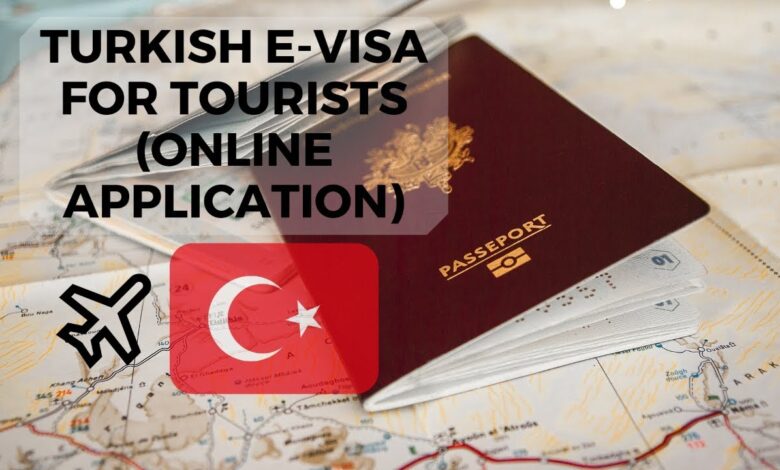Everything You Need to Know About Obtaining a Turkey Visa for South African Citizens

Are you a South African citizen planning to explore the historical and cultural wonders of Turkey? Well, before packing your bags, let’s talk about obtaining a Turkey visa. This may seem daunting at first but don’t worry – we’ve got everything you need to know! From visa types to application procedures, we’ll guide you through the process step-by-step so that your Turkish adventure can begin without any hiccups. So grab a cup of coffee and read on for all the necessary information on obtaining a Turkey visa as a South African citizen. Turkey Visa for South African Citizens
What is a Turkey Visa?
If you are a South African citizen wishing to visit Turkey, you will need to obtain a tourist visa. The application process is relatively straightforward and can be completed online or at any Turkish embassy or consulate in your home country. You will need to submit a valid passport, an application form (available from the Turkish embassy or consulate), two recent passport-size photos, payment for the visa fee (in cash or bank transfer), and your travel itinerary. If you are applying for a multiple-entry visa, you will also need to provide proof of onward travel.
Once your application has been accepted, you will receive notification in the mail regarding the date of your visa appointment. At the appointment, you will have to present your passport and application form as well as two recent passport size photos. The processing time for a turkey visa varies depending on the specific embassy or consulate; however, most applications are processed within a few weeks.
How to Obtain a Turkey Visa for South African Citizens
If you are a South African citizen and wish to visit Turkey, then you will need to obtain a visa.
You can apply for a Turkey visa at the Turkish embassy or consulate in your country of residence. The application process varies depending on the embassy or consulate, but generally you will need to provide your full name, date of birth, passport number and photograph. You will also be required to submit an application fee and proof of travel insurance.
Once your application has been accepted, the embassy or consulate will send you a visa invitation letter which you should bring with you when travelling to Turkey. You should also note that the visa does not allow for stays longer than 30 days. Turkey Visa Types
How to Get a Turkey Visa if You Are Not a Citizen of Turkey?
If you are not a citizen of Turkey, you will need to apply for a visa through the Turkish consulate in your home country. The application process can be time-consuming and requires supporting documentation. You will also need to provide proof of your income and accommodation. When you arrive in Turkey, you will need to carry your passport, your visa application form, and some other documentation with you.
Types of Turkey Visas
If you are a citizen of South Africa, and want to visit Turkey, you will need to obtain a visa. There are two types of Turkish visas: tourist and business. The tourist visa allows you to stay in Turkey for up to 90 days. The business visa allows you to stay in Turkey for up to six months. You must apply for the visa in advance, through your local Turkish embassy or consulate. You will need to provide proof of your citizenship, identification card, and passport information.
How Long Does It Take to Get a Turkey Visa?
If you are a South African citizen and want to travel to Turkey, there are a few things you need to know in order to get the Turkey visa. Here is an outline of the process:
The first step is to apply for a tourist visa at your nearest Turkish embassy or consulate. You will need to provide your passport information, as well as evidence of travel arrangements. The application process can take up to two weeks, so be sure to apply well in advance.
Once you have your tourist visa, you will need to arrive in Turkey with valid travel documents (a passport, plane ticket, and return ticket). You will also need sufficient funds to cover your stay in Turkey and any expenses that may arise. Finally, make sure you have an inoculation certificate if you are travelling during the winter season.
Once you have all of your documents in order, it is time to visit the tourism police office in your city or town. There, you will be required to fill out a short form and pay a fee. This fee covers the cost of processing your visa application. After paying the fee, you will receive a notice confirming that your visa has been approved. You should now make all necessary travel arrangements!
Costs associated with a Turkey Visa
Turkey is one of the Schengen countries, which means that citizens of many European countries can visit Turkey without a visa. However, non-EU citizens require a visa to enter Turkey. The cost of a visa depends on your nationality and the validity of your passport. The cost for a Turkish tourist visa is currently €60 (R1,200). For South Africans, the fee is R1,040. To apply for a Turkish tourist visa online, visit www.evisa3d.com or www.turkeyvisaonline.com . Both websites offer English applications and instructions. Evisa3d accepts payment by Visa, Mastercard and American Express credit cards. If you are applying from outside Turkey, you will need to provide your passport information and send copies of important documents such as your ID card and driver’s license. Once you have submitted your application and received a notification email with your visa number, you will need to go to the nearest Turkish Embassy or Consulate to pick up your visa in person.
Conclusion
If you’re hoping to travel to South Africa this holiday season, now is the time to start planning. While it’s not difficult to get a turkey visa, it is important to do your research so that you don’t run into any delays or problems along the way. By following our tips, you should be able to obtain your turkey visa without any difficulty at all. Make sure to bookmark this page and return later for more information on how to obtain a turkey visa for South African citizens.




